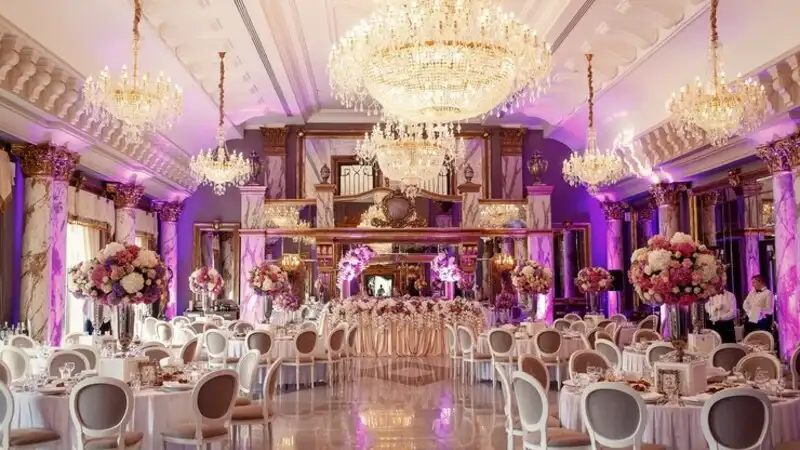Planning a wedding is a thrilling yet intricate endeavor, filled with a multitude of decisions to be made. Among the most significant choices is selecting the right wedding ceremony service. Your ceremony sets the tone for the entire celebration, embodying the essence of your union and laying the foundation for cherished memories.
With countless options available, it’s crucial to consider several factors to ensure your ceremony reflects your vision and values. From tradition to personalization, let’s explore what to contemplate when choosing a wedding ceremony service.
Reflect on Your Beliefs and Values
The first step in selecting a wedding ceremony service is to reflect on your beliefs and values as a couple. Consider your religious or spiritual affiliations, if any, and how important they are to both of you.
Are you looking for a traditional religious ceremony, a contemporary spiritual celebration, or a secular service? Understanding your shared values will guide you toward a ceremony that feels authentic and meaningful.
Explore Ceremony Options
Once you’ve identified your beliefs and values, explore the various ceremony options available. Traditional religious ceremonies, such as Catholic, Jewish, Hindu, or Muslim weddings, follow specific rituals and customs that hold deep cultural significance.
Alternatively, you may opt for a secular ceremony officiated by a civil celebrant or a non-religious officiant, which allows for greater flexibility and personalization. Research each option thoroughly to determine which aligns best with your preferences.
Consider Venue Restrictions and Requirements
When choosing a wedding ceremony service, it’s essential to consider the restrictions and requirements of your chosen venue. Some religious institutions may have strict guidelines regarding who can officiate the ceremony and what rituals are permitted.
Similarly, certain venues, such as parks or beaches, may have regulations regarding noise levels, decorations, and permits for ceremonies. Be sure to inquire about any restrictions or requirements before finalizing your ceremony plans to avoid any last-minute surprises.
Factor in Personalization and Customization
Personalization is key to creating a wedding ceremony that feels uniquely yours. Consider how you can infuse elements of your relationship, interests, and personalities into the ceremony.
Whether it’s writing your vows, incorporating cultural traditions, or including meaningful readings and music, there are countless ways to personalize your ceremony and make it a true reflection of your love story.
Determine the Role of the Officiant
The officiant plays a central role in your wedding ceremony, guiding you through the exchange of vows and declarations of commitment. When choosing an officiant, consider someone who shares your values and understands your vision for the ceremony.
Whether it’s a religious leader, a friend ordained for the occasion, or a professional celebrant, ensure that the officiant is someone you trust and feel comfortable with.
Budget Considerations
As with all aspects of wedding planning, budget considerations play a significant role in choosing a ceremony service. Traditional religious ceremonies may require additional fees for venue rental, officiant honorariums, and other associated costs.
On the other hand, secular ceremonies officiated by friends or family members may offer a more budget-friendly option. Determine how much you’re willing to allocate towards your ceremony and explore options that fit within your budgetary constraints.
Communication and Coordination
Effective communication and coordination are essential when planning a wedding ceremony. Ensure that all parties involved, including the officiant, venue staff, and any vendors, are on the same page regarding the ceremony details and logistics.
Establish clear timelines, roles, and expectations to minimize stress and ensure a smooth and seamless ceremony experience.
Reflect on Future Memories
Finally, as you navigate the decision-making process, take a moment to reflect on the memories you hope to create on your wedding day.
Your ceremony sets the stage for the celebration that follows, marking the beginning of your journey as a married couple. Choose a ceremony service that not only honors your past and present but also sets the tone for the beautiful memories you’ll cherish for years to come.
Accessibility and Inclusivity
When planning your wedding ceremony, it’s essential to consider the accessibility and inclusivity of your chosen service. Ensure that your venue is accessible to all guests, including those with mobility challenges or disabilities.
Additionally, take into account the diversity of your guest list and strive to create a ceremony that is inclusive of all cultural backgrounds, beliefs, and identities. By prioritizing accessibility and inclusivity, you’ll ensure that all of your guests feel welcome and valued as you celebrate your love and commitment.
Conclusion
Selecting a wedding ceremony service is a deeply personal decision that requires careful consideration of your beliefs, values, and preferences as a couple.
Whether you opt for a traditional religious ceremony, a secular celebration, or something in between, prioritize authenticity, personalization, and meaningfulness. By taking the time to explore your options and communicate effectively with all involved parties, you can create a truly unforgettable wedding ceremony.
